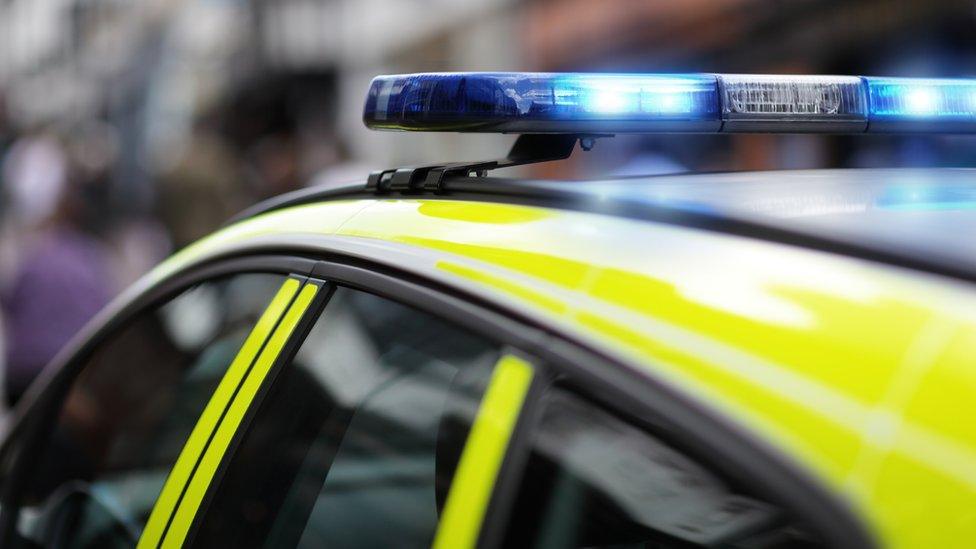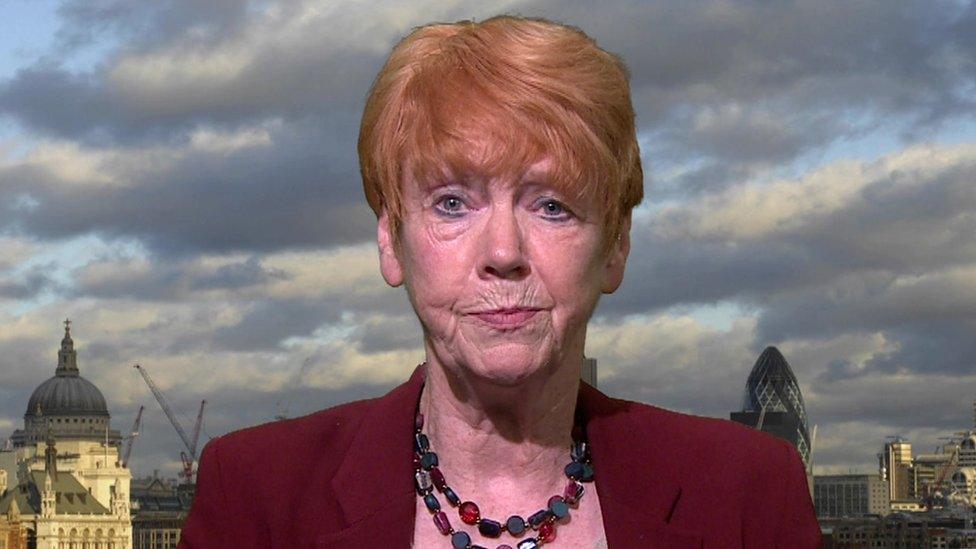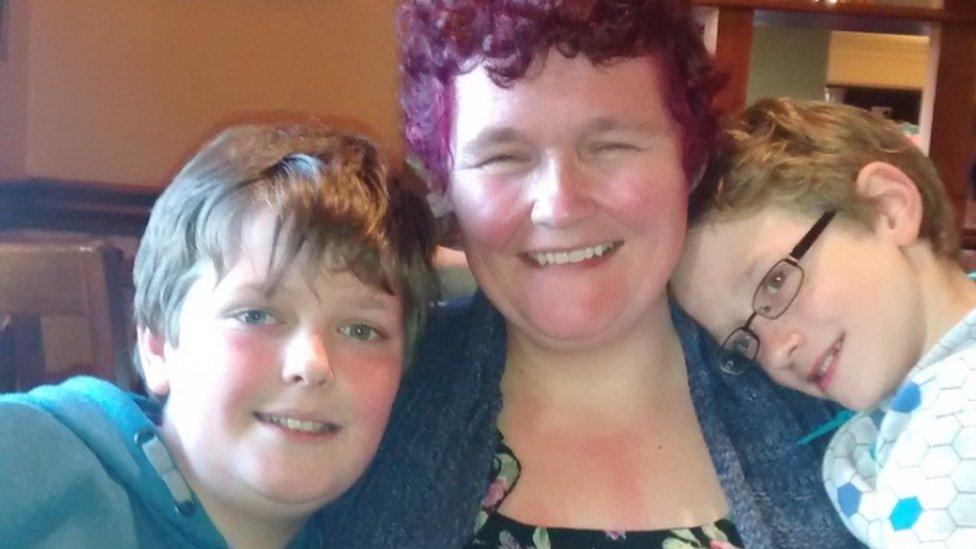'I was raped' by police officer ex-husband
- Published
'Suzanne' says she believes her ex-husband was "protected because of his job"
Police officers and staff accused of domestic abuse are a third less likely to be convicted than the general public, figures from 37 forces suggest.
They show 3.9% of claims against police led to a conviction from 2015-18 in England and Wales, compared with 6.2% among the population as a whole.
Police domestic abuse lead Dame Vera Baird said the issue does not "appear to be taken as seriously" as it should.
The Home Office said it was bringing in reforms "to improve police integrity".
Figures from the Freedom of Information request, conducted by the Bureau of Investigative Journalism (TBIJ),, external also found that more than four allegations of domestic abuse against police staff were recorded each week.
Fewer than a quarter of those allegations led to disciplinary action.
There are 200,000 members of the police workforce in England and Wales according to latest figures, external, of whom 122,000 are police officers.

Suzanne's story
Suzanne - not her real name - told the BBC's Victoria Derbyshire programme her ex-husband, a police officer, was violent towards her for years.
She said she eventually called police when he threatened her with a knife, but they did very little.
"The police turned up and the only advice they gave him was he should leave the house and go for a walk to calm down.
"I don't remember them talking to me at all," she added.
Suzanne said the violence escalated and her ex-husband hit their six-year-old son.
When she filed for divorce, she said he raped her.
She moved out with her children and reported him to his boss.

Suzanne believes her ex-husband was "protected because of his job"
A domestic abuse officer came to investigate, but Suzanne says they did not take a statement and no record was made on file.
A few months later, her son was seen by a teacher being pushed into a car by his father.
In a police interview - which Suzanne says she only saw four years later - her son said his father "tried to strangle him and had his hands on his throat", she said.
No charges were brought against her ex-husband.
She believes he was "protected because of his job".
After years of suffering post-traumatic stress, she decided to go back to the police and obtain access to her police file, but she found nothing on record.
The force said it would investigate her complaint but because there was nothing on file it closed the case.
The police watchdog, the Independent Office for Police Conduct (IOPC), asked the force to reinvestigate Suzanne's case last year. And now 16 months later, the force has said it cannot uphold her complaint.
Her husband has since retired but Suzanne now plans to sue the force - which cannot be named for legal reasons.

The national domestic abuse charity SafeLives said the figures showed just "the tip of the iceberg".
Chief executive Suzanne Jacob said it "would urge every police force to pay close attention to what these stories and statistics show us - that women are being silenced and abused by people in positions of trust and power."
Dame Vera Baird QC said she was "not surprised that these issues don't appear to be taken as seriously as they should be by the police".

Dame Vera Baird said some officers were "quite resistant to hearing about wrongdoing in colleagues"
There was a "defensive, mutually supportive culture" among police officers, she said, which can make "forces and probably some individual officers quite resistant to hearing about wrongdoing in colleagues."
In Northumbria, where she serves as police and crime commissioner, she said she would look into creating a system where any criminal investigations against police staff would be handed over to a neighbouring force to carry out.
The Home Office said it was "essential that every allegation of domestic abuse is taken seriously.
"Where allegations are made against those working for the police, their status and powers mean it is even more important that these are thoroughly investigated to maintain public confidence."
It added: "Where officers commit a serious breach of the standards expected of them, disciplinary and, if required, criminal proceedings should follow.
"We are also implementing a wide-ranging programme of reforms to improve police integrity, including improving the transparency of the disciplinary system and strengthening the powers of the IOPC."

Follow the BBC's Victoria Derbyshire programme on Facebook, external and Twitter, external - and see more of our stories here.
- Published19 February 2019

- Published21 January 2019
